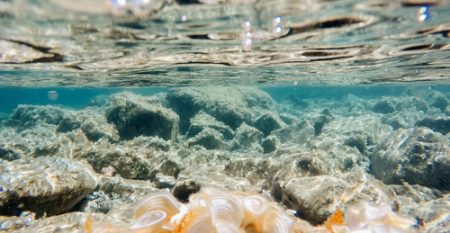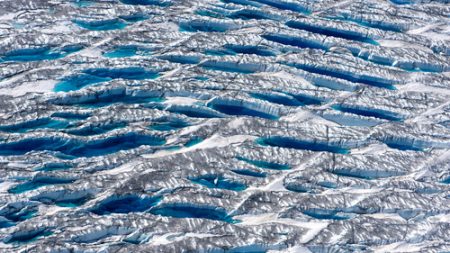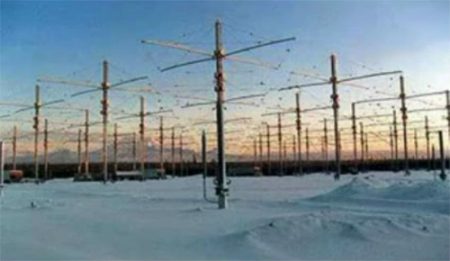Rate Of Ocean Warming Quadrupled Since Late 20th Century, Study Reveals

Source: CarbonBrief.org The buildup of heat-trapping greenhouse gases is warming the upper ocean four times faster than during the period 1960-1990, according to new research. The paper, published today in the journal Science Advances, is the latest effort to piece together current and historical measurements from ships, self-propelled floats, satellites and even seals to get […]
The Great Greenland Meltdown

Source: ScienceMag.org From a helicopter clattering over Greenland's interior on a bright July day, the ice sheet below tells a tale of disintegration. Long, roughly parallel cracks score the surface, formed by water and pressure; impossibly blue lakes of meltwater fill depressions; and veiny networks of azure streams meander west, flowing to the edge of […]
HAARP, A Short Summary Video

